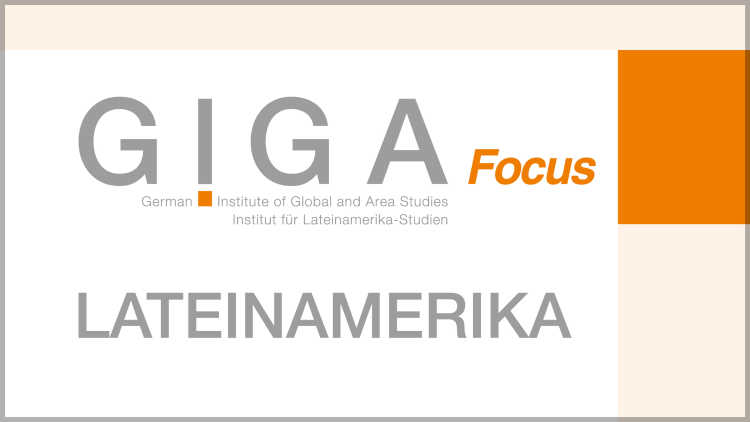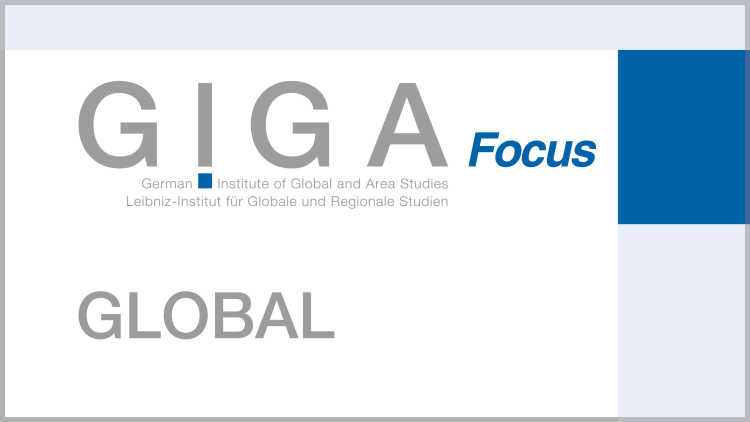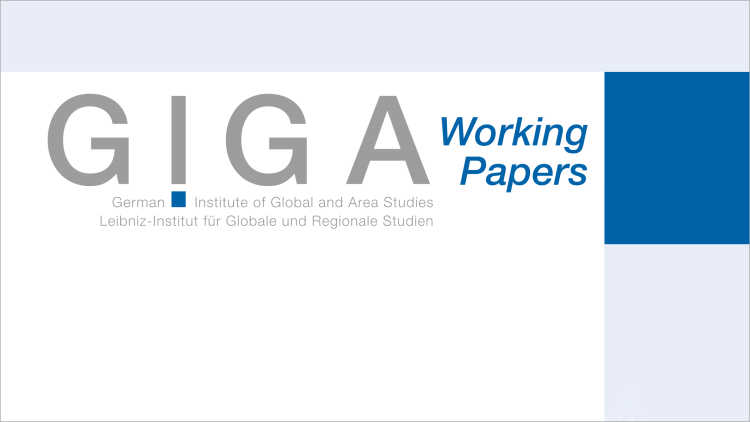- Home
- Publications
- GIGA Focus
- Infrastrukturprojekte zwischen geopolitischen Interessen und lokalen Konflikten
GIGA Focus Latin America
Infrastrukturprojekte zwischen geopolitischen Interessen und lokalen Konflikten
Number 10 | 2012 | ISSN: 1862-3573
Am 15. August 2012 kündigte Brasiliens Präsidentin Dilma Rousseff ein Konjunkturpaket an, das den Ausbau der Infrastruktur dynamisieren soll. Über 65 Mrd. USD sollen in den Ausbau von 5.700 km Schnellstraßen und 10.000 km des Eisenbahnnetzes investiert werden.
Analyse Brasilien übernimmt beim Ausbau der regionalen Infrastruktur im Rahmen der Initiative zur Regionalen Integration Südamerikas (IIRSA) eine Führungsrolle. Zwölf südamerikanische Staaten wollen 96 Mrd. USD in 524 Projekte im Transport- und Energiesektor investieren. Gegen diese Projekte regt sich wegen der Missachtung von Menschenrechten und Umweltstandards vielfach Widerstand.
Brasilien deckt seinen Energiebedarf zu über 70 Prozent durch Wasserkraft. Um wirtschaftlich wettbewerbsfähig zu bleiben, will es seine diesbezüglichen Kapazitäten in den kommenden Jahren verdoppeln. Neue Wasserkraftwerke dafür sind nicht nur in Brasilien, sondern auch in den Nachbarländern geplant.
Proteste von lokalen Bevölkerungsgruppen und mit diesen verbündete Nichtregierungsorganisationen (NRO) haben den Bau einiger Projekte gestoppt, so etwa das Inambari-Wasserkraftwerk in Peru.
In Bolivien löste der geplante Bau einer Schnellstraße durch den Nationalpark TIPNIS Proteste aus und spaltete die Bevölkerung. Daran haben auch die von der Regierung Morales organisierten Konsultationen nichts geändert.
Die Konflikte zeigen, dass die Durchsetzung solcher Großprojekte sowohl die Einhaltung von Umweltstandards als auch die Zustimmung der im unmittelbaren Umfeld lebenden Bevölkerung benötigt.
Footnotes
Regional Institutes
Research Programmes
How to cite this article
Garzón, Jorge, and Almut Schilling-Vacaflor (2012), Infrastrukturprojekte zwischen geopolitischen Interessen und lokalen Konflikten, GIGA Focus Latin America, 10, Hamburg: German Institute for Global and Area Studies (GIGA), http://nbn-resolving.de/urn:nbn:de:0168-ssoar-320625
Imprint
The GIGA Focus is an Open Access publication and can be read on the Internet and downloaded free of charge at www.giga-hamburg.de/en/publications/giga-focus. According to the conditions of the Creative-Commons license Attribution-No Derivative Works 3.0, this publication may be freely duplicated, circulated, and made accessible to the public. The particular conditions include the correct indication of the initial publication as GIGA Focus and no changes in or abbreviation of texts.
The German Institute for Global and Area Studies (GIGA) – Leibniz-Institut für Globale und Regionale Studien in Hamburg publishes the Focus series on Africa, Asia, Latin America, the Middle East and global issues. The GIGA Focus is edited and published by the GIGA. The views and opinions expressed are solely those of the authors and do not necessarily reflect those of the institute. Authors alone are responsible for the content of their articles. GIGA and the authors cannot be held liable for any errors and omissions, or for any consequences arising from the use of the information provided.







